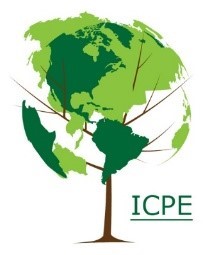The term “sustainable development” is a global concept with many facets. While human-made capital is never a substitute for natural capital, we can’t expect to achieve sustainable development without ensuring that our societies’ institutional and policy environments promote democratic governance. The goal of sustainable development is to protect our planet for future generations. The following are five core principles of sustainable development. You can use them to improve your life and those of others. But first, what exactly is sustainable development?
Human-made capital cannot substitute for natural capital
Strong sustainability is a concept that assumes that human-made capital cannot substitute for natural capital. As an input into a society, human-made capital can compensate for a decline in natural capital. On the other hand, weak sustainability suggests that human-made capital cannot substitute natural capital as a provider of ecosystem services. As such, weak sustainability is the worst model of sustainable development, and we should only be considering it as a complementary resource to natural capital.
In economic theory, human-made capital is the transformation of natural capital. While manmade capital can be created with half the amount of natural capital, it does not replace it. Natural capital is the material cause of production. Capital stock transforms natural inputs into usable products. Man-made capital, on the other hand, cannot use half the amount of timber to build a house. In other words, human-made capital cannot substitute natural capital for sustainable development.
Yet, a deeper understanding of natural capital would enable economists and ecologists to build a consensus on its importance. It would also enable us to translate this notion into more manageable practices. We live in a world of tipping points and irreversible thresholds. These tipping points may have catastrophic consequences for human civilizations. Unsustainable human activity affects people who are not directly involved.
This rule is a crucial part of the sustainability paradigm. If the natural capital stock is reduced, then we may be able to sustainably use a lower stock of natural capital. But we cannot allow the stock to decline any further. The “constancy of total natural capital” rule is a prudent minimum requirement and should only be relaxed if solid evidence is available to prove otherwise. In this article, we discuss the extent to which man-made capital can substitute natural capital, how to measure ecosystem services, and the role of a discount rate in valuing natural capital.
Institutional policy environments for the exercise of democratic governance
There are many aspects of institutional policy environments for the exercise of democratic governance that can be improved. A study by the World Bank shows that ethnic diversity in developing countries has significant implications for government policies. Inequality in the distribution of power can negatively affect market and economic growth. Furthermore, institutions often limit the opportunity for meaningful participation and are not transparent. This results in a lack of accountability and debilitating T&I.
The NIE outlines various ways to improve transparency and accountability, including the creation of a level playing field among interest groups. It also identifies a variety of ways to ensure equal treatment for all groups and to eliminate anti-growth processes. It suggests ways to structure participation to maximize accountability and transparency, tying these to laws and institutions. In addition, the NIE identifies several critical elements that contribute to effective democracy.
Many of the popularly used terms for democracy tend to focus on vertical relations between the state and the citizen. For example, donor agencies support free media, human rights, and elections. On the other hand, many policy reform programs promote loosening governmental constraints on the private sector and different markets. Hence, institutions and policies need to reflect democratic governance in order to achieve sustainable development. There are several other factors that affect democratic governance and the ability to promote sustainable development.
In addition to democratic values, democratic institutions are also important in the exercise of democratic governance. These institutions facilitate the formation of policies and allow the leaders to enact legislation in an effective manner. Besides, democratic institutions are able to absorb disagreements and channel them through institutions that are governed by rules. Ultimately, this makes the exercise of democratic governance for sustainable development more efficient. In the long run, democracy requires longer-term policies.
Impact of industrial activities on the environment
Since 2000, the environmental pressure caused by industrial activities has been reduced significantly. This reduction is a result of more stringent environmental protection policies. While the largest pollutant is industrial waste gas, the total amount of sewage discharged and construction land used also fluctuated significantly. These changes suggest a need to improve economic utilization and strengthen governance of wastewater discharge problems. Environmental policy makers and managers should examine the impacts of industrial activities and how these can be optimized to benefit human welfare.
While the environmental benefits of reducing greenhouse gases are well-known, they don’t always translate into immediate financial gains. By using alternative energy sources and creating closed-loop manufacturing systems, industry can reduce its negative environmental impact. Also, sustainable materials are less likely to contain energy, so these can be more efficient in the industrial sector and distribution networks. Further, industry should ensure that it uses land that is free from contamination.
Industrial activities also threaten ecosystems. Pollution from industrial processes threatens ecosystems and causes significant losses in animal and plant life. Pollution from industrial practices threatens ecosystems by depleting natural carbon sinks. Deforestation also damages forests and leaves animals with no habitat. This is not only unsustainable but can also damage human health. This means that industrial activities have a negative impact on human health.
In addition to reducing pollution, sustainable development also protects natural resources and ecosystems. Sustainable industrial development must be inclusive and provide equal opportunities for all people. It must also decouple economic development from negative environmental impacts and excessive use of natural resources. It must be inclusive, providing means to address critical social needs. There are two main types of sustainability: weak and strong. Weak sustainability refers to the lack of natural resources while strong sustainability is about preserving ecosystems and their biodiversity.
Social relations of solidarity oriented towards equity
Societies based on social and solidarity economies are an emerging sector, and have the potential to solve major challenges facing the global society. These economic systems are people-centred and planet sensitive, based on principles of equity, inclusion, and cooperation. They are focused on meeting the needs of communities, with a special emphasis on disadvantaged and marginalized groups. This type of economy is also growing in popularity.
The concept of fairness is becoming more important in our globalized world, as the notion of fairness is closely linked to respect for freedom and equality. Solidarity-based economies provide targeted initiatives and projects that work towards this end. They also help address the issue of difference in the context of fairness. Consequently, they are more suitable for today’s globalized society. The following are some of the main principles of solidarity-based economies:
Firstly, a solidarity-based economy must be responsible. This implies that each individual or group must recognize that they have an obligation to respect other people’s rights and values. They must also be aware of their own limitations, and accept responsibility for others. These three principles are critical to a solidarity-based economy. The concept of solidarity-based economies must be extended to the meso and macro-economic levels, where it is necessary to promote appropriate social interaction and behaviour.
Towards this end, it is important to understand the role of market-based organizations in the Solidarity Economy. As Solidarity-based economies become more integrated into global value chains, they may be forced to adopt market-based practices such as micro-credit and for-profit enterprises. This is problematic for Solidarity-based enterprises because it requires them to deal with the informal economy and the broader social system.
Children’s role in sustainable development
A recent report by UNICEF outlines the need for a world fit for children. Specifically, the report highlights three main messages for a world fit for children. Children should be respected, cared for, and given the chance to play and grow. They should also have the same opportunities as adults to experience a safe, healthy world. By taking action in their own communities, children can also help promote sustainable development worldwide.
Moreover, natural environments have inherent benefits for children, such as fostering a strong connection with a local place and forming sensory memories during play. Furthermore, exposing young children to sustainability issues early on will provide a strong foundation for them to grow up with an understanding of the environment. Thus, the role of early childhood education in this area should be enhanced. It should also be integrated into non-formal learning environments.
Another important goal is gender equality and empowerment. Goal 4 seeks to empower all women and girls. This target is crucial because harmful gender norms often start at birth and continue to spread as children grow older. It has been estimated that as many as 650 million girls and women were married before they turned eighteen years old and over 200 million girls have been subjected to female genital mutilation. In addition to poverty, a child who has not experienced nurturing care is at a greater risk of experiencing inter-personal violence.
These four themes are interrelated and interdependent. Children’s experiences of sustainable development will be captured in four vignettes and interrogated for evidence of environmental understanding and STEM competence. These four themes will be framed as a holistic model of sustainability. However, there is a significant gap in the literature in this field. It is therefore essential to find a model that works for children. This approach will help us understand the complexities of the concept.









